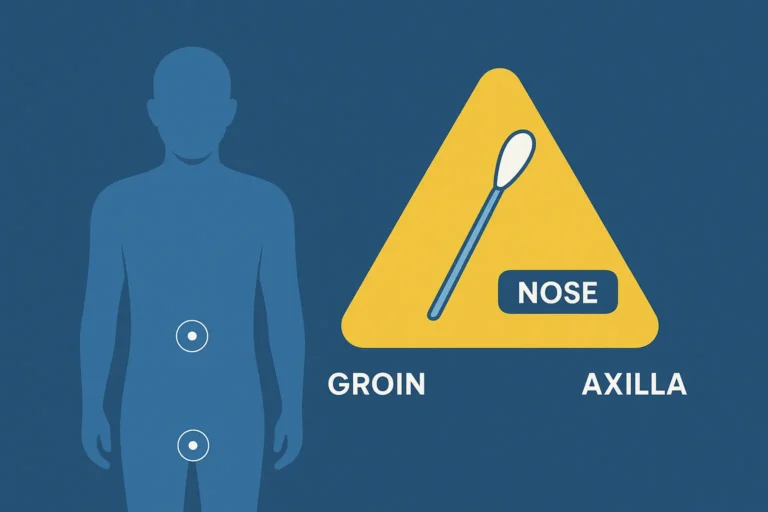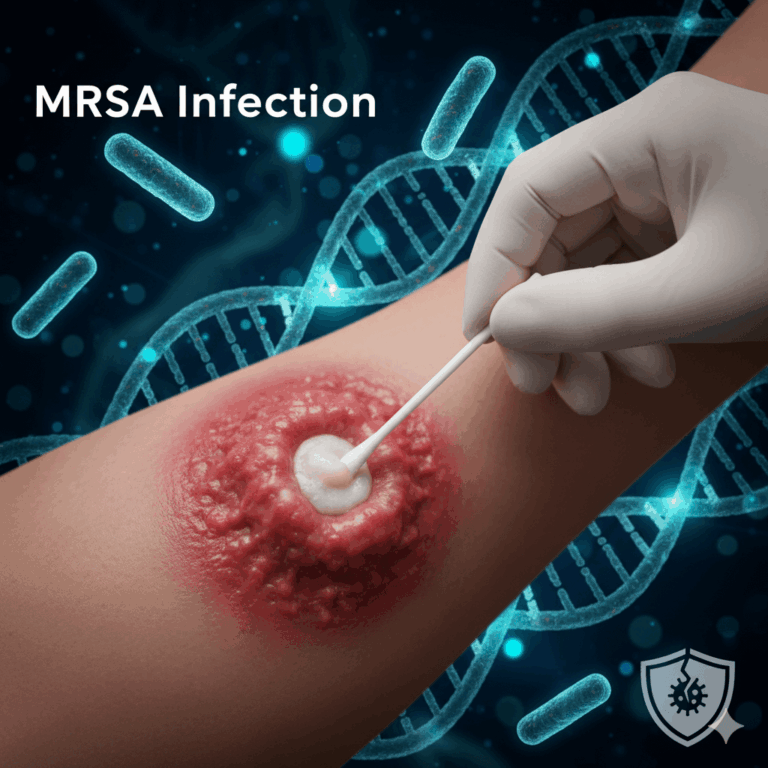-
What Is an MRSA Culture Test? A Clear Guide for Patients
If you have been advised to have an MRSA screening, perhaps for an upcoming hospital procedure, it is perfectly normal to have questions. The medical…
-
Understanding Blood Tests: A Simple Guide for Patients
Being told you need a blood test can often bring a wave of uncertainty. For many, the thought of a needle, confusion over whether to fast, and the…
-
What Does a CA125 Blood Test Show? A Clear Guide
If your doctor has recommended a ca125 blood test, it’s completely understandable to feel a sense of uncertainty or concern. Hearing terms like…
-
HbA1c Blood Test: A Complete Guide to Understanding Your Results
If your doctor has recommended an HbA1c blood test, it’s completely normal to feel a mix of confusion and concern. You may be asking yourself: what…
-
Food Intolerance Tests: A Scientific Guide to Their Accuracy and Value
Persistent bloating, unexplained fatigue, or frustrating skin issues can leave you searching for answers. It is a common and understandable response…
-
Preparing for Surgery: A Complete Pre-Op Health & Logistics Checklist
The period leading up to a scheduled operation can feel overwhelming. With a list of complex medical instructions to follow, questions about fasting…
-
CRP Blood Analysis: A Clear Guide to Understanding Your C-Reactive Protein Test
Receiving your blood test results can be a source of anxiety, especially when they contain unfamiliar terms like ‘C-reactive protein’. If you’re…
-
What Is MRSA? Your Complete Guide to Symptoms, Causes & Risks
Are you concerned about a skin infection that won’t heal, or perhaps you’ve been told you need screening before a hospital procedure? The term ‘MRSA’…
-
MRSA Screening for Surgery: A Complete Patient Guide
You’re preparing for an important operation, but a single, often misunderstood test can feel like a major hurdle. The thought of a positive result,…
-
What Is a Ganglion Cyst? A Complete Guide to Causes, Symptoms & Treatment
Discovering a new, firm lump on your wrist, hand, or finger can be concerning. The sudden appearance of any unexpected growth often leads to…
-
MRSA Test: Get Fast, Accurate Results at Home with a Rapid PCR Kit
The period leading up to surgery can be filled with anxiety, and the last thing you need is the added stress of a potential delay. Mandatory MRSA…
-
MRSA Explained: Causes, Risks, Treatments, and What You Can Do
What Is MRSA? MRSA stands for Methicillin-Resistant Staphylococcus aureus. In plain English, it’s a tough kind of staph germ—something you might have living harmlessly on your skin or in your nose. The tricky part? MRSA has learned to ignore some of the antibiotics that usually work, so treating it isn’t always easy. (CDC) Staph bacteria…
-
The Golden Triangle of Screening: Why the 3-Site MRSA Swab is Essential for Your Health
In the fight against MRSA (Methicillin-resistant Staphylococcus aureus), knowledge is the first line of defense. While we know that testing is important, many people ask: Why is the MRSA swab taken from multiple sites, and is one site enough? The answer lies in maximizing detection and minimizing risk. The standard MRSA screening procedure focuses on…
-
Active MRSA Infection: When the Battle Begins – Recognize the Symptoms and Act Fast
In our previous blog post, we discussed the difference between being colonized with MRSA (an asymptomatic carrier) and having an active MRSA infection. While colonization is silent and requires MRSA screening for detection, an active MRSA infection is a serious medical condition that demands immediate attention. When the bacterium Methicillin-resistant Staphylococcus aureus (MRSA) breaches the…
-
Am I an MRSA Carrier? Understanding the Key Difference Between Colonization and Active Infection and How to Find Out.
Estimated Reading Time: 5 minutes. The acronym MRSA (Methicillin-resistant Staphylococcus aureus) immediately raises concern, and rightly so. This bacteria is notorious for its resistance to several antibiotics and is a common cause of serious infections in hospital settings. However, there is a vital distinction that most people don’t know: the difference between being colonized with…














